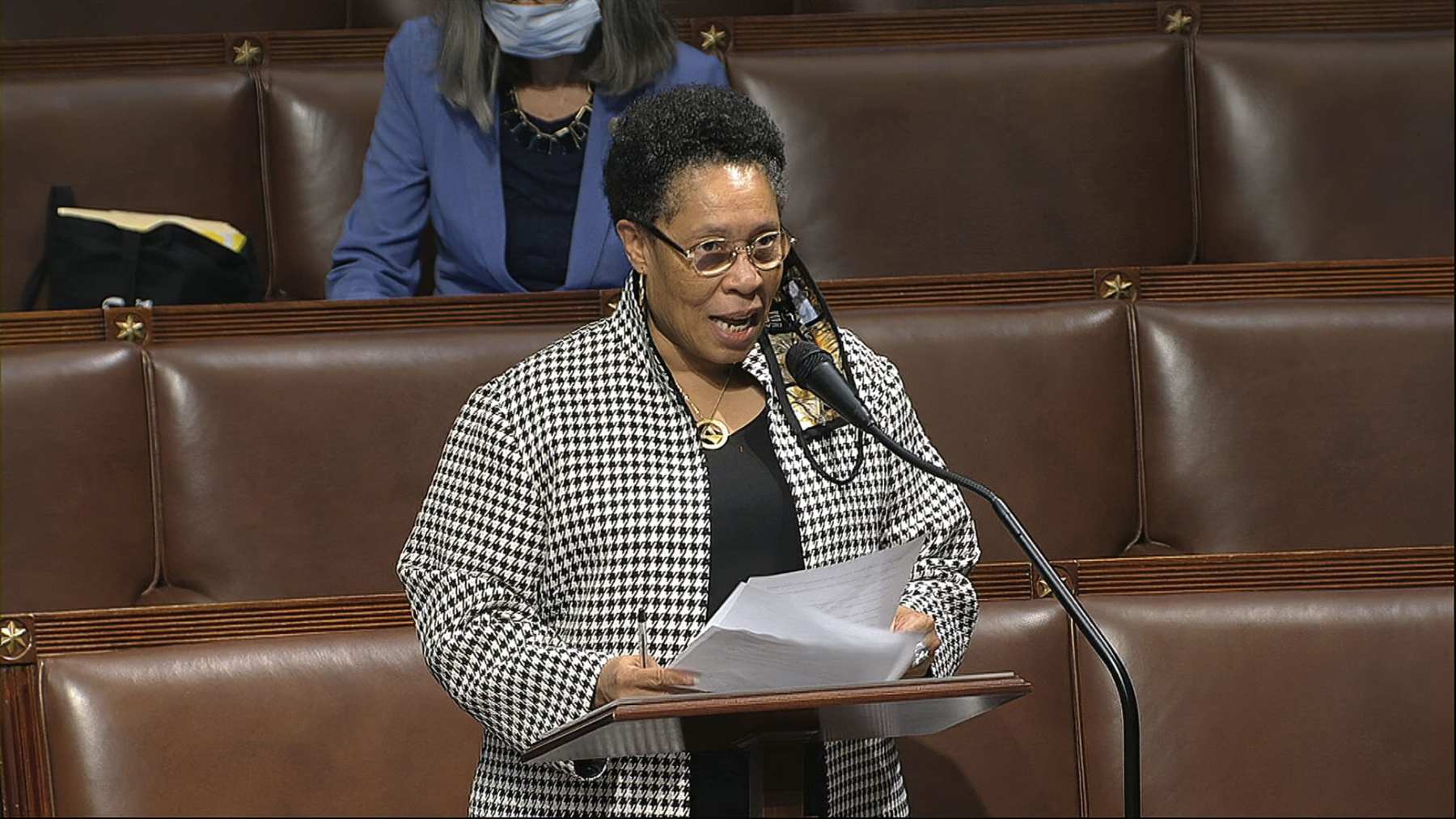As President-elect Joe Biden announces his picks to help him govern, a growing list of influential organizations are calling for the nomination of Ohio Democratic Rep. Marcia Fudge to head the U.S. Department of Agriculture, a potentially pioneering role.
There has only been one woman, Republican Ann Veneman of California, and one Black person, Democrat Mike Espy of Mississippi, to ever serve as agriculture secretary. If nominated and confirmed, Fudge could become the first Black woman to lead the USDA in its 158-year history.
Since her election to Congress in 2008, Fudge — an ex-mayor and former chair of the Congressional Black Caucus — has been focused on issues of nutrition, hunger and poverty, priorities she could bring to the role. Among the groups that have voiced support for her nomination are Feeding America, the AFL-CIO, the NAACP and the National Urban League.
On Sunday, two dozen racially and gender diverse organizations — including all four Black Greek sororities, The Links and The National Council of Negro Women — sent a letter to the Biden transition team urging Fudge’s selection.
They pointed out the position is responsible for areas “extremely important to Black, Brown and other marginalized Americans,” including overseeing infrastructure, expanding rural broadband and funding for certain historically black colleges and universities. Made up of more than two dozen agencies with nearly 100,000 employees, the USDA oversees a federal budget of about $150 billion.
The groups also note Fudge’s previous experience in the House and her roots in the country’s heartland, and made the case for Black women’s leadership, in particular, during the pandemic.
“Due to COVID-19 and other factors, the futures of farmers across our nation are at risk — and at the same time that food insecurity is at an all-time high,” the letter reads.
“It is critically important that Black women’s leadership be well represented in your cabinet and throughout the administration,” the letter continues. “There is a grave need for transformational leadership in our government. She has a long-standing commitment to our nation’s farmers and to policies that can help lift and keep our rural and urban communities out of poverty.”
According to the Children’s Defense Fund, more than one in six children — 12.5 million — lived in food-insecure households in 2017, many of them disproportionately Black and Brown. Before the pandemic, more than 20 million children received free or reduced-price school lunch and more than 12 million received free or reduced-price breakfast. Supplemental Nutrition Assistance Program (SNAP) assistance helped feed 17 million children.
Fudge’s appointment could bring a more nuanced understanding to the demographics of rural America. Though they make up only 8.2 percent of the rural population in the United States, nearly nine out of 10 rural Black Americans live in the South — particularly in the Black Belt, according to the 2010 Census. Latinx people make up 9.3 percent of the country’s rural residents, more than half are concentrated in the four states of Texas, California, New Mexico, and Arizona.
Fudge’s lived experience could help to reimagine the department’s priorities, said Johnetta Cole, president of the National Council of Negro Women.
“That means that some of the issues that simply have not been front and center from the Department of Agriculture will now come forward if Marcia Fudge is at the helm,” said Cole, a former president of historically Black women’s colleges Spelman and Bennett.
Fudge’s district includes most of Cleveland and parts of Akron, but the USDA declared Ohio as having the fifth-highest percentage of “prime farmland” in the country. She serves on the House Committee on Agriculture and chairs the Subcommittee on Nutrition. She has previously served in the House Agriculture Committee’s subcommittee on forestry and is a former chair of the Congressional Black Caucus.
Fudge, 68, lists as among her governing priorities child nutrition, SNAP, access to healthy food and fair labor practices, and support for land-grant historically Black colleges. She is also a past national president of Delta Sigma Theta Sorority, Inc.
“When we think about agriculture and we think about farmers, they’re not all White men,” Cole said. “It’s amazing how we have images that do not reflect the reality. I look forward to the issues, the concerns, the long-standing struggles of Black farmers being addressed. Through the eyes and the heart of an African American woman … this department would have to deal with the fact that many of our children go to bed hungry every night. We cannot continue to ignore that.”
Racism has resulted in the loss of millions of acres of land for Black farmers, who in 1999 successfully sued the Department of Agriculture and won one of the largest civil rights settlements in U.S. history, paying more than 13,000 farmers over $1 billion. In 2010, Congress approved an additional $1 billion to address thousands of additional discrimination claims.
Melanie Campbell, president of the National Coalition on Black Civic
Participation/Black Women’s Roundtable — one of the signatory groups of the letter sent Sunday — said in an interview that Fudge’s experience as a former mayor and legislator who has worked on agriculture issues in the House for nearly a decade make her extremely prepared for the role.
“It’s about economic development in rural communities, where Black people do live as well,” said Campbell. “And in light of what we’re going through with COVID-19, where you see the impact it’s having on hunger … kids are not in school and still need access to food. When you have high unemployment and no federal relief, people are out here hungry.”
Fudge was a key surrogate for Biden during the general election campaign and initially endorsed Vice President-elect Kamala Harris when the California Democratic senator ran for president last year.
Biden has been announcing key positions and proposed roles in his new administration since winning the election more than two weeks ago. On Monday, he announced the nomination of Linda Thomas-Greenfield for U.N. Ambassador, the first prominent Black woman named as a potential member of his cabinet, and Avril Haines for director of national intelligence, the first woman who would hold that position.
Other women have also been mentioned for the role of Agriculture Secretary, including former North Dakota Democratic Sen. Heidi Heitkamp, previously considered for the role by President Donald Trump.






